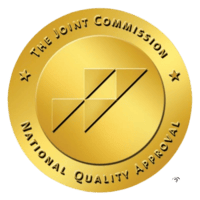Understanding Teenage Substance Abuse
To truly understand the complexities of teenage substance abuse, we must explore beneath the surface, examining the myriad of underlying factors that contribute to this alarming trend. The path toward substance abuse often begins in adolescence, a period characterized by tremendous psychological, emotional, and physical changes. This volatile phase can make teenagers susceptible to the allure of drugs to cope with stresses and anxieties.
Drug prevention strategies play a crucial role in combating this issue, focusing on curbing drug use and addressing root addiction causes. Youth counseling benefits, being integral, provide a safe space for adolescents to express concerns, learn coping mechanisms, and build resilience, helping teenagers understand substance abuse dangers.
Signs Your Teen May Be Using Drugs
As we turn our attention to identifying indicators of drug use among teenagers, it becomes imperative to educate ourselves about the tangible signs and symptoms. The complexity lies in discerning normal adolescent behavior from potential substance abuse, demanding a deeper understanding of the dynamics of teenage substance use.
A careful analysis of changes in behavior, such as sudden disinterest in previously enjoyed activities or a decline in academic performance, can be warning signs. Psychological symptoms, including mood swings, paranoia, lack of motivation, or apathy, alongside finding evidence of drug use, are clear signs of experimentation.
Understanding Teenagers’ Substance Abuse
Recognizing these signs is merely scratching the surface; gaining a deeper comprehension of teenagers’ substance abuse requires understanding underlying reasons and factors. Two notable factors contributing significantly to this alarming trend are teenage depression and peer pressure.
Teenage depression often turns teens to drugs as a coping mechanism. Peer pressure, an external factor, influences a teenager’s decision to experiment with drugs, with the desire to fit in, coupled with curiosity and rebelliousness, leading teens to risky choices.
The Role of Supportive Parents
In the tumultuous journey of teenage drug detox, supportive parents serve as a beacon of resilience and understanding for struggling adolescents. Family therapy provides a safe communication platform, mending emotional rifts often caused by addiction, encouraging family cohesion, crucial in a teenager’s recovery journey.
Yet, being supportive extends beyond education and therapy. It requires balancing firmness and compassion, understanding and discipline. A supportive parent nurtures self-esteem and inspires hope – key ingredients for successful detoxification, offering invaluable rewards, including a healthier, happier child.
Types of Drug Detox Programs
How can we categorize drug detox programs available to teenagers, and what benefits does each offer? We’ll explore inpatient, outpatient, and specialized teen programs. Inpatient detox programs offer a highly structured, controlled environment, providing extensive support but with high costs.
Outpatient programs allow teens to live at home while attending treatment sessions, requiring more commitment and self-discipline. Specialized teen programs meet teenagers’ unique needs, integrating educational components and support to overcome substance abuse.
Evaluating the Right Detox Program
Selecting the appropriate detox program involves a careful assessment of the teenager’s individual needs, addiction severity, and personal circumstances. Detox program costs are important, and careful evaluation ensures features are necessary for recovery, not just financial burdens.
Insurance coverage options must be examined as they can alleviate financial strain. Conducting a thorough insurance policy review with representatives and program admission officers clarifies coverage. Thoughtful consideration ensures the chosen program fits the teen’s situation.
The Detoxification Process Explained
Understanding the detox process is essential to any effective treatment plan, involving steps to remove toxins from the body due to substance abuse. First: A thorough evaluation helps professionals understand the addiction extent and medical history.
Second: Stabilization involves assisting teenagers through withdrawal, with possible medical interventions for severe symptoms. The final step is preparing the teenager for further treatment, essential for recovery, requiring a well-structured plan and guidance.
Post-Detox: Ongoing Recovery Support
Once the detoxification phase is completed, the journey toward sobriety moves into ongoing recovery support, involving continuous care, healthy coping mechanisms, and significant peer support, essential for sustainable recovery, fostering resilience.
Guiding recovery, teenagers require an unwavering system of continuous care to safeguard progress. Preventive measures, thorough support, and regular check-ins ensure responsibility and commitment to sobriety, equipping teenagers with support for a drug-free future.
Building Healthy Coping Skills
Establishing healthy coping skills is a critical component of ongoing recovery. It equips teenagers with strategies to deal with stressors post-detox. Emotional resilience, essential for managing emotional ups and downs post-detox, reduces relapse risks.
Cognitive-behavioral therapy fosters resilience and stress management techniques. Effective stress management, crucially reducing relapse likelihood, involves mindfulness, physical activity, and nutrition, guarding against substance use as a coping mechanism.
Importance of Peer Support
In recovery, peer support emerges as a powerful tool, with a sense of shared experience sustaining sobriety post-detox. Support groups provide mutual encouragement, enabling teenagers to resist substance temptations.
Peer support should not be underestimated, acting as a buffer against relapse and promoting long-term sobriety. Participation fosters belonging and understanding, enhancing resilience and sobriety commitment, leading to a healthier life.
Resources for Parents and Families
Family counseling is transformative, navigating emotional challenges, fostering communication, and rebuilding trust while reducing addiction stigma. Parental education equips parents with crucial knowledge about addiction and recovery, helping identify signs of drug use.
These resources empower parents as effective allies, addressing psychological, emotional, and social aspects. Providing holistic support increases successful recovery chances. For parents grappling with addiction, these resources are a beacon of hope.
Final Thoughts

The challenge of teenage substance abuse requires diligent attention from parents, educators, and healthcare providers. Selecting the appropriate detox program is essential, considering factors such as individual needs, addiction severity, and costs. Enhanced understanding of this complex issue paves the way for better intervention strategies, promoting healthier outcomes for teenagers dealing with substance abuse.
At BlueCrest Detox, we’re dedicated to elevating you from the struggles of substance use to the peaks of recovery and resilience. Our expert team offers personalized, evidence-based treatment services tailored to support your unique journey toward healing. Reach out to us for the compassionate care you deserve on your path to wellness. Follow us on Facebook for ongoing support, insights, and inspiration on your recovery journey.
Frequently Asked Questions
Are There Specific Legal Implications if My Teen Is Caught Using Illegal Drugs?
Yes, legal implications exist if a teenager is caught using illegal drugs, including potential juvenile sentencing. However, rehabilitation laws may provide alternatives to incarceration, emphasizing treatment and recovery for underage offenders.
What Can Schools Do to Help in Preventing Teenage Substance Abuse?
Schools can play a pivotal role in preventing teenage substance abuse by fostering an environment that discourages drug use. Incorporating extracurricular activities to engage students and educating them about the dangers of peer influence are effective strategies.
How Can Drug Detox Programs Affect My Teenager’s Academic Performance?
Detox programs, while essential for recovery, may initially affect academic performance due to detox duration and withdrawal effects. However, long-term benefits include improved concentration and overall well-being, promoting better academic achievement post-recovery.
Are There Any Recommended Books or Films About Drug Addiction Recovery for Teens?
Yes, several educational resources tackle drug addiction recovery for teens. Books like “Beautiful Boy” and films like “Requiem for a Dream” provide insightful, thought-provoking narratives on peer influence and recovery stories.
What Types of Health Insurance Policies Cover Drug Detox Programs for Teenagers?
Various health insurance policies cover drug detox programs for teenagers, subject to policy loopholes and insurance limitations. The extent of coverage often depends on the specific policy terms, state regulations, and individual insurance company guidelines.




